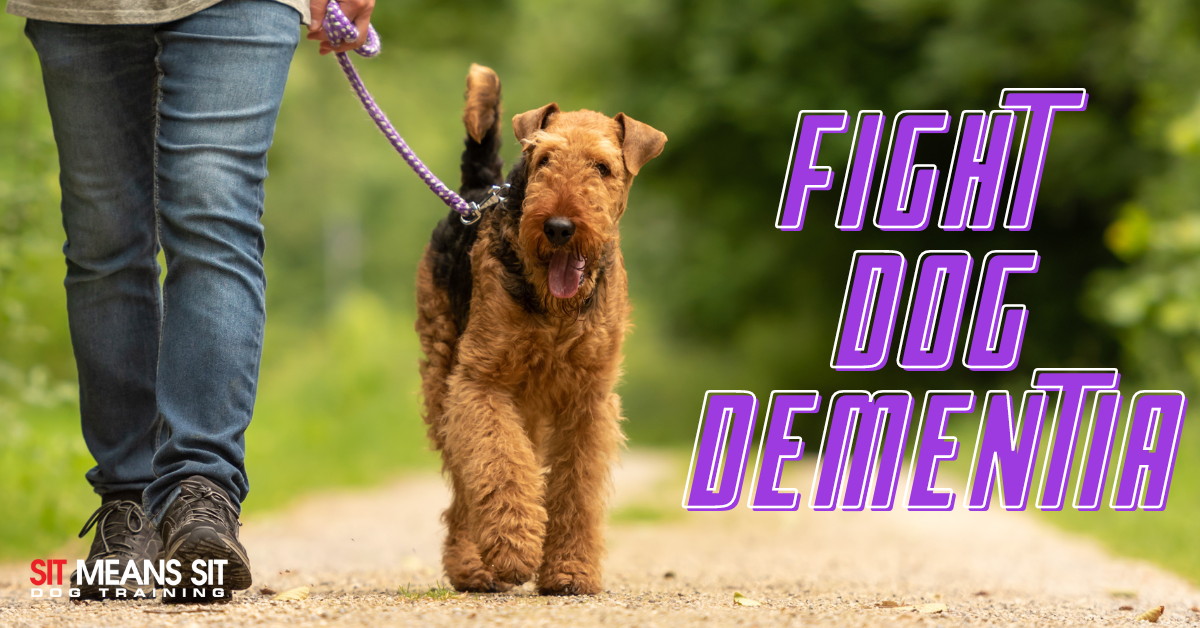
Regular Walks Could Help Fight Against Dog Dementia
So, we all know that there are countless benefits to taking our dogs on walks. They range from preventing weight gain to controlling their energy levels, so they are more well-behaved.
However, a new study conducted by the University of Washington and the Dog Aging Project has looked at the rates of dementia and dogs, and their findings may surprise you.
The Study
This study, published in Scientific Reports, looked at over 15,000 dogs to collect their data.
For each dog they observed, they looked at the basic information like breed, age, diet, medical history, etc. Then, dog parents answered the Canine Social and Learned Behavior survey that asks 13 questions to predict if a dog is exhibiting canine cognitive decline (CCD), AKA “doggy dementia.”
The most common signs of CCD include failing to recognize familiar people or objects, lack of focus, incontinence, and getting stuck behind objects.
With the results of the survey, researchers discovered that 1.4 percent of dogs in the study had CCD. They then compared these surveys to the characteristics they documented earlier to see which characteristics were correlated with CCD risk.
What They Found
The first thing the researchers found was that the most accurate predictor of CCD was a dog’s age. As dogs age, their chances of developing the condition increase by 52 percent.
Once you get past the age of a dog, the second largest predictor of whether or not a dog will develop CCD is activity level. Dogs who were not active were over 6x more likely to develop CCD than active dogs.
Physical activity is a significant protective factor against dementia in humans. The reason for this is that physical activity reduces inflammatory brain proteins, improves neuroplasticity, and can also increase the size of the hippocampus, which is the region of the brain responsible for learning and memory. Researchers believe the effects may be the same in dogs.
What This Means for You
While this research does have its limitations, and there is not a fool-proof way to prevent CCD in dogs, it does give us some good information on things we can do as dog owners to help prevent or delay the onset of CCD.
The greatest thing you can do for your dog is to make sure that they are getting a good amount of exercise. If you aren’t sure how much exercise your dog needs, here is some helpful information. This could mean daily walks or more games of fetch. Anything you can do to ensure that your dog has some physical activity each day is going to benefit not only their brain but their overall physical health.
